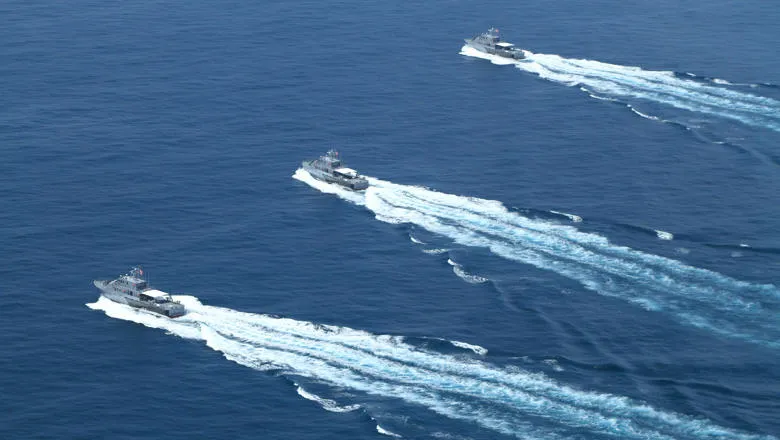31 May 2019
King's College London and US Naval War College in major research collaboration
The new Corbett 100 project will bring together researchers, veterans and active military to discuss historical perspectives on naval historian Sir Julian Corbett and his works, but also explore contemporary questions including maritime strategy, defence policy, naval theory, seapower, trade protection and future global security.

The new Corbett 100 project will bring together researchers, veterans and active military to discuss historical perspectives on naval historian Sir Julian Corbett and his works, but also explore contemporary questions including maritime strategy, defence policy, naval theory, seapower, trade protection and future global security.
Corbett 100 is a collaboration between the Laughton Unit, Department of War Studies, King’s College London and the Hattendorf Historical Center, U.S Naval War College. It marks the centenary of the death of British naval historian and maritime strategist Sir Julian Corbett (1854-1922) in 2022. The project will run between 2019 and 2023, featuring special publications and events.
“Corbett believed in writing history of the highest academic standards but designed for the use of serving officers and statesmen. Corbett’s approach remains relevant to the 21st century, and this project is not only a study for historians but will inform defence educators, decision makers and the development of naval policy, military doctrine and both grand and national strategy,” said Professor Andrew Lambert, Laughton Chair for Naval History, King’s College London.
Corbett 100 is co-directed by PhD candidate James W.E. Smith, King’s College London and Dr D Kohnen, Hattendorf Center for Maritime Historical Research, U.S Naval War College. The project is supported through an academic council consisting of Professor Andrew Lambert at King’s College London and Professor John Hattendorf at the U.S. Naval War College.
Corbett’s commitment to the education of the Royal Navy, the integration of naval thought into national strategy and policy, and the importance of academic rigour marked him out from the majority of contemporary writers in the subject. A civilian and a progressive liberal in politics Corbett developed maritime strategic naval doctrine in the context of an evolving British system, in contrast to the work of serving officers.
Corbett understood the critical importance of the past, once suitably analysed, in highlighting long terms trends in national security policy. His major theoretical contribution came in 1911 with the publication of Some Principals of Maritime Strategy, which remains the single most important text on maritime strategy and it placed Corbett among the great strategic thinkers.
The scholarly connections between King's College London and the Naval War College are deeply entwined. In the late nineteenth century, King's College London Professor Sir John Laughton assisted U.S. Navy Rear Admiral Stephen B. Luce in efforts to establish the U.S Naval War College. Laughton not only inspired Corbett but many of the ideas attributed to U.S. Navy Captain Alfred Thayer Mahan and the American notion of "sea power" at the dawn of the twentieth century.
